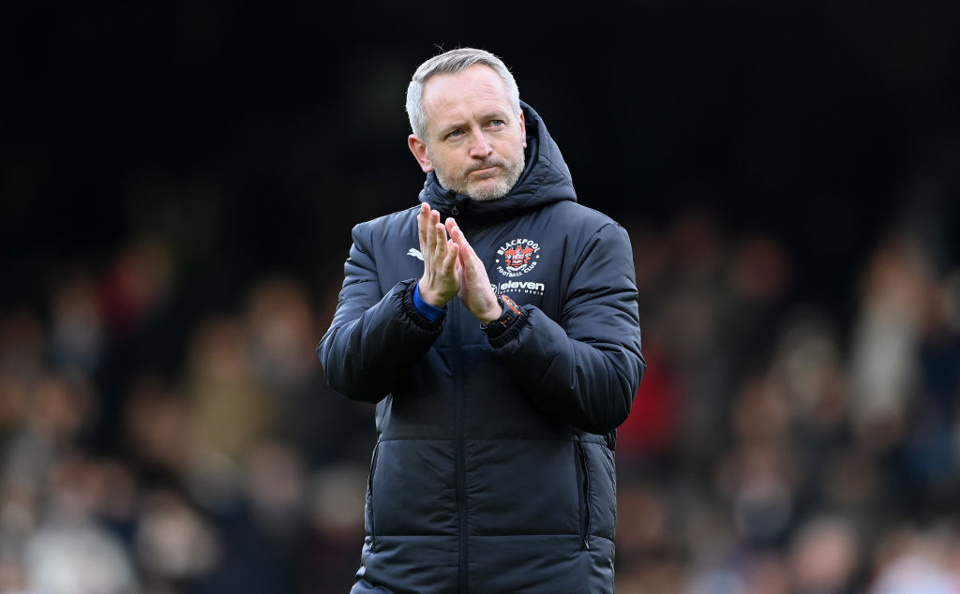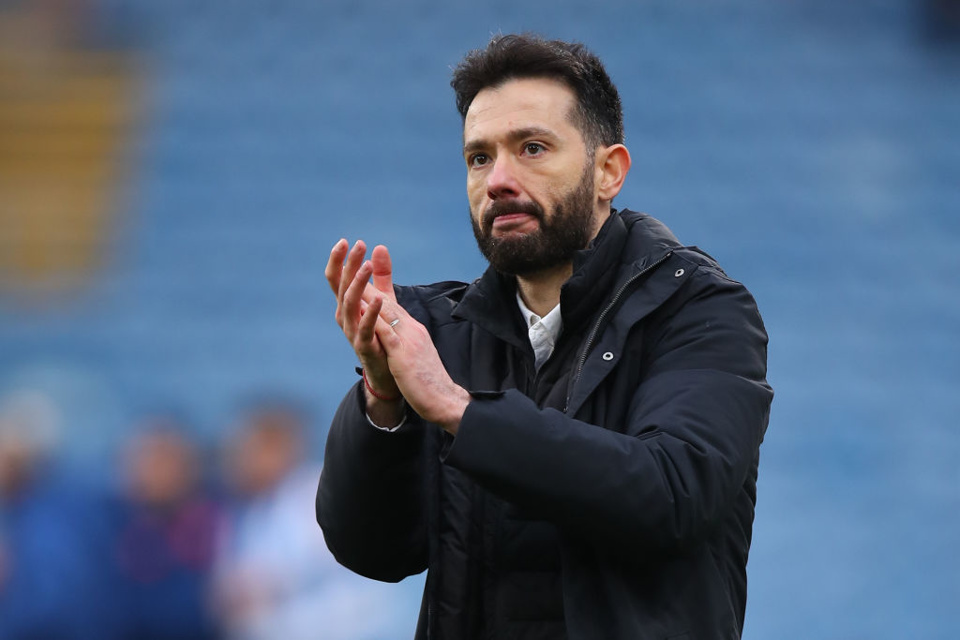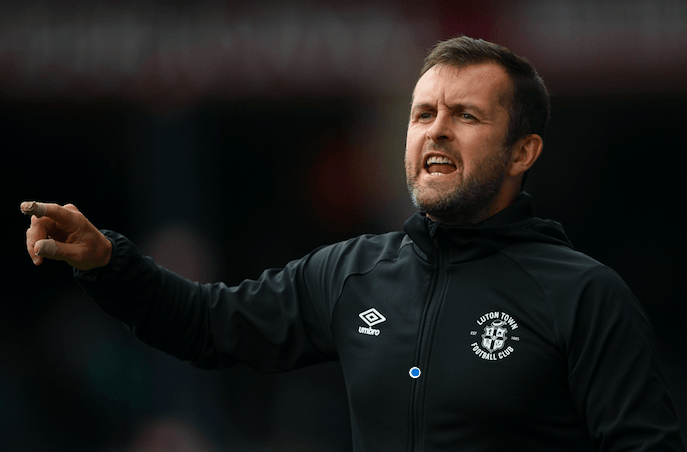Championship 2021/22: Top Five Managers of the Season

EFL expert Gab Sutton has delivered us his top-five Championship managers of the 2021/22 season, complete with a full justification for each selection.
Here’s what he’s had to day, from fifth through to first...
5. Neil Critchley (Blackpool)
Ok, this writer might have tipped Blackpool for a safe, midtable finish, but the common consensus was that they would be in a dogfight in their first season back in the Championship.
Thanks to a combination of savvy recruitment and exquisite coaching within a clear playing identity, the Tangerines have defied most expectations to come 16th.
Not only that, the Seasiders have taken four points off champions Fulham, thrashed Birmingham 6-1, hit seven past Reading across two victories and taken 20 points off top nine opposition.
These results mean Neil Critchley’s side have recorded a whopping 60 points, four shy of a top half finish and 23 clear of the drop zone.
Critchley has achieved this objective by establishing a clear, high-pressing style of play with emphasis on quick transitions, whether that be in the form of early balls into target man Gary Madine or brisk wide play from Josh Bowler and Keshi Anderson.
Bowler was previously recognized as a quick, tricky, two-footed wide player with little end product, but under the current coaching team he’s become somebody who can also create between lines, slide in through balls for a striker or grab a goal himself.
Anderson’s development, meanwhile, encapsulates Critchley’s ability to coach players to new heights: striker Jerry Yates and defender Marvin Ekpiteta have gone from being good League Two players to midtable Championship on his watch.
Plus, there is always a logic to the recruitment: Blackpool want to play with a high-press, so they recruited a striker in Shayne Lavery with incredible energy levels.
They want to get the ball high up the field, so they signed a goalkeeper in Daniel Grimshaw with excellent long-range distribution.
They need midfielders to cover a lot of ground because the wide men support the strikers in the press, so they signed Ryan Wintle, who has a fantastic engine.
Every decision is made with joined-up thinking, thus Blackpool have outperformed their budgetary rank, as well as the coaching ability of Critchley.
Having retired from playing at 24, Critchley is vastly experienced in coaching and has an excellent reputation in the youth circuit, notably for his work with Trent Alexander-Arnold, but he felt he needed to prove himself in senior management.
After leading the Fylde coast club to promotion in effectively his first season followed by this year’s excellent efforts, Critchley could barely have had a better opening two years as a head coach.
A section of Southampton fans are calling for change from Ralph Hassenhuttl and the Saints may look to the 43-year-old as a replacement, while Burnley might have interest, but Critchley has no reason to jump ship willy nilly.
The odds would be against him and Blackpool next season but, with more top coaching and smart recruitment, there is no reason why they cannot relish the underdog tag.

4. Mark Robins (Coventry)
It seems incredible to think that the most recent manager to leave Coventry was Russell Slade.
The Sky Blues’ woe-ridden 2016-17 relegation campaign feels like a different era but once Mark Robins came in, and oversaw victory over Oxford at Wembley, it’s been uphill ever since.
The Midlanders reached the League Two Play-Offs on the final day of the following campaign thanks to a draw of convenience with Morecambe, before beating Notts County and Exeter to secure an instant return.
A top half finish in League One preceded the title in 2019-20, ultimately comfortable Championship survival last term prior to an outside Play-Off challenge.
Constant progression over five years is incredibly hard to do under one manager, especially without an enormous budget, not to mention on the backdrop of a point of crisis.
What’s remarkable is that if we were to tell a Coventry fan from 2017 that the club would go on to achieve what it has on the field, they would automatically assume that it has been done under new ownership.
Otium Entertainment Group (formerly SISU) retain ownership, only Joy Seppala has taken a step back and handed the decisions to the experts: Head of Football Operations Mike Reid, Head of Recruitment Chris Badlan and manager Mark Robins.
Whether by luck or judgment, Coventry have the right people in key roles and everything has snowballed from there.
Where Robins deserves credit, though, is in his pragmatism and adaptability.
From the solid, gritty clean sheet machine from the first half of the League Two promotion season, to the free-scorers in the second half of that campaign.
From the counter-attacking outfit in 2018-19, to the more possession-based side in 2019-20, then conservative tweaks for the step up to the Championship prior to this term’s high-press.
Robins has been able to evolve the side in a way that would normally require multiple managers, which makes him very much a man for all seasons.
And if Coventry can retain two of Gus Hamer, Callum O’Hare and Viktor Gyokeres, then spend the money for the departing player wisely, perhaps they can push further next season.

3. Carlos Corberan (Huddersfield)
In the previous 13 Championship seasons, just three teams have achieved a top six finish the year after staying up by no more than two places.
Barnsley achieved that feat against all the odds in 2020-21, but Hull did it in 2007-08 after significant investment from Paul Duffen in high-profile players like Bryan Hughes and Fraizer Campbell, while Brighton spent approximately £8-10m on transfer fees across their 2015-16 campaign.
Huddersfield, though, have joined the Championship transformers club, tying up a Play-Off berth under Carlos Corberan, without such extravagance.
Goalkeeper Lee Nicholls and right-back Oli Turton were not automatic starters in League One last season, for MK Dons and Blackpool respectively, while centre-back Tom Lees had been relegated with Sheffield Wednesday: those three players have featured in 122 league games between them.
Levi Colwill made his first senior appearance this term at 18 and is starring for a Championship Play-Off side, on loan from Chelsea, while Matty Pearson has also proved an excellent addition at the back.
These smart recruits have seen the Terriers go from being a side that shipped 71 goals, the most in the second tier, in 2020-21, to a team that has kept 19 clean sheets, with only Bournemouth and Sheffield United recording more shut-outs.
With Lewis O’Brien’s relentless energy in midfield, Harry Toffolo’s rampaging runs from the left, Sorba Thomas’ dangerous forays from the right, Danel Sinani’s cute craft and Danny Ward’s impeccable work ethic has been crucial to Town’s success too, but so much comes down to Corberan’s coaching.
The Spaniard sees new levels in players where others do not and, having learnt a lot from his time working with Marcelo Bielsa, Corberan looks hot property on the managerial scene.
The 39-year-old is 20/1 with William Hill to be the next Watford head coach and could be a good shout for that remit, balancing the Hornets’ need for a continental speaker, a strong domestic track record and high potential – if he fancies the risks that come with going to Vicarage Road.
Before that, though, Corberan has ahead of him a crucial Play-Off Semi-Final meeting with Luton – and possibly one more game after that…
Championship Promotion Odds

2. Nathan Jones (Luton)
To a casual outsider, the Championship can sometimes feel like a closed shop.
Norwich, Watford, Fulham and possibly now Bournemouth find themselves in a category of yo-yo teams that come down, overpower the second tier with their parachute payments, go back up within a year or two, spend the money poorly but then find their expensive mistakes in the Premier League are still too good for the division below.
This league needs an injection of romance and unpredictability, but Luton have provided it.
The Hatters have a squad on which just £1.5 million has been spent on transfer fees, and while that figure may be slightly misleading given that good players can be picked up on frees, it shows they have done two things extremely well.
Firstly, shrewd recruitment: Jay Socik has been appointed Head of Recruitment Analysis off the back of his excellent work for MRKT Insights as well as for a number of other EFL clubs, and continues to hit the spot.
Secondly, excellent coaching.
We talked above about the pragmatism Mark Robins has shown at Coventry, and it’s a similar story for Nathan Jones, who has become a stronger Championship manager for his difficult time at Stoke.
Before that move, the fiery Welshman opted for a 4-4-2 diamond setup with extremely attacking full-backs, Jack Stacey and James Justin, providing the width.
In the Potteries, Jones did not have the personnel for that formation but he stuck with it and, amongst other issues including misfortune, results did not go to plan.
Since returning to Luton, Jones has not only shown more formational flexibility but also a willingness to mix his side’s game up, sometimes releasing Harry Cornick in behind, or playing an early ball into Elijah Adebayo.
While the 48-year-old remains extremely demanding of his players, he is not as perfectionistic as perhaps he used to be in a stylistic sense, which makes him well-placed to step up to a Premier League job – whether that’s with the Hatters next season, or an opportunity elsewhere.
Pep Guardiola’s Manchester City deal expires next summer – no, we’re not suggesting City go for Jones just yet – but it’s likely they will go for Mikel Arteta at Arsenal, who may in turn plump for Graham Potter at Brighton.
Jones was previously a coach with the Seagulls and could be an excellent option for them if there is a vacancy next summer, but for now he is doing wonders at Kenilworth Road – and could get his current club back to the top flight for the first time since 1992.

1. Steve Cooper (Nottingham Forest)
Nathan Jones, Carlos Corberan, Mark Robins and Neil Critchley have worked wonders on modest budgets this season, and either of the former two could feel aggrieved not to be number one on this list.
But for us, it can only be Steve Cooper.
Nottingham Forest were bottom of the Championship with four points from eight games when Cooper was appointed on 21st September, with the former Swansea boss handed the brief of stabilizing matters this term and overseeing comfortable survival.
In fact, the Reds have shot up to fourth under his watch, taking a whopping 76 points from 38 games, winning on 22 occasions.
The work of miracles? Close.
This was a good Forest squad mismanaged by Chris Hughton conservatism, and maybe with a touch more fortune more points could have been accrued in August and September.
Nonetheless, the turnaround was stark and straight after Cooper took charge, there was a different energy around the club.
They had a manager who connected with fans, who had the coaching ability to improve individuals, who had the tactical nous change games that weren’t going their way.
Keinan Davis and Sam Surridge look inspired January acquisitions now, bringing strength, stamina, springiness and a goal threat to the Reds’ attack, but not everyone would have said when they joined that they would be lethal Championship finishers rather than big, selfless runners.
James Garner impressed on loan in the second half of last season, but has gone up another level under Cooper in a more advanced role, adding exceptional ball-carrying qualities to the creative vision he already possessed.
Right-back Djed Spence and wide forward Brennan Johnson have forged an exceptional right-sided pairing under Cooper’s guidance, with the latter becoming one of the country’s hot properties.
25-year-old defenders Joe Worrall and Scott McKenna have found new levels in their game, and even veterans like Jack Colback are playing with a confidence they have never had before.
Cooper looks every inch a Premier League manager and there is no reason to think, after securing three consecutive Play-Off finishes in the Championship, that he cannot achieve that objective with Nottingham Forest.
No longer possessing a revolving managerial door, no longer seeking 20 new players every summer, Forest look a club with a structure, a club with a plan: and while Cooper – and CEO Dane Murphy – are around, the future can only be bright.


